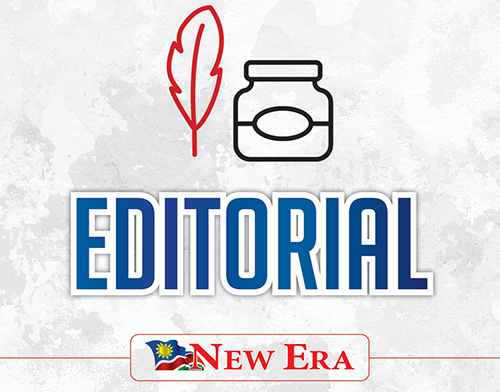Namibians, especially workers, are going through extreme headwinds right now with food, fuel, credit and almost everything else having been the most expensive they’ve ever been.
Workers are bearing the brunt of a dire situation while everything has gone up, salaries have stagnated since 2017.
With one Namibian worker generally believed to be taking care of around seven other people, salaries, for those lucky enough to have them, are further stretched while still paying roughly a third of it in income tax.
To blow the chill factor of headwinds further, sky high unemployment continues unabated and there seems to be little in terms of silver lining anywhere near this dark cloud.
The Bank of Namibia on Wednesday decided to increase the repo rate by 50 basis points, from 4.25% to 4.75%. Announcing the increase, Johannes !Gawaxab, governor of the bank, said the decision considered the elevated global and domestic inflationary pressures, the fragile economic recovery and the need to safeguard the one-to-one link between the Namibia dollar and the South African rand, while meeting the country’s financial obligations.
A hike in the repo rate increases the cost of borrowing in the economy for domestic consumers and businesses. This in turn reduces purchasing power and investment capacity, thereby, in theory, the move should help reduce inflation.
However, the repo rate increase pours more misery on Namibian consumers, most of whom rely heavily on debt to survive.
The latest repo rate increase has economists concerned about a possible credit crunch, which is basically a decline in lending activity by financial institutions.
A credit crunch often occurs in recessions, making it nearly impossible for companies to borrow because lenders fear bankruptcies or defaults.
As the central bank only has the mandate of maintaining our one-to-one link with the South African Rand, there is little they can do to influence rate hikes.
The consumer has been stripped of their buying power. The prices of staples have shot up, disproportionally impacting poor households who have lost the ability to substitute down.
There is little relief on the horizon. With the trade unions and government still in a tussle over a much-needed raise, the largest portion of the workforce faces another year of battling inflation on the same salary.
They are caught in a no-win situation.
There is no chance of a salary hike anytime soon. If the civil servants withdraw their labour, they will be slapped with the no work, no pay rule which will cripple them even further financially causing even more misery and desperate decisions.
Because we like things, we continue to buy things we can’t afford with money we don’t have.
So, the banks cash in. It is time we exercise constraint in trying to impress others and try to live within our means.
It’s time we try an out of the box solution. It is time for the people we vote for to bring forward concrete immediate solutions. It’s time government reconsider the level tariffs and taxes the average person pays from petrol to pre-paid airtime.
The N$50 000 personal income threshold has not been reviewed in a long time and increasing the amount salaried people are exempted could serve as a much-needed wind in workers’ sails.


